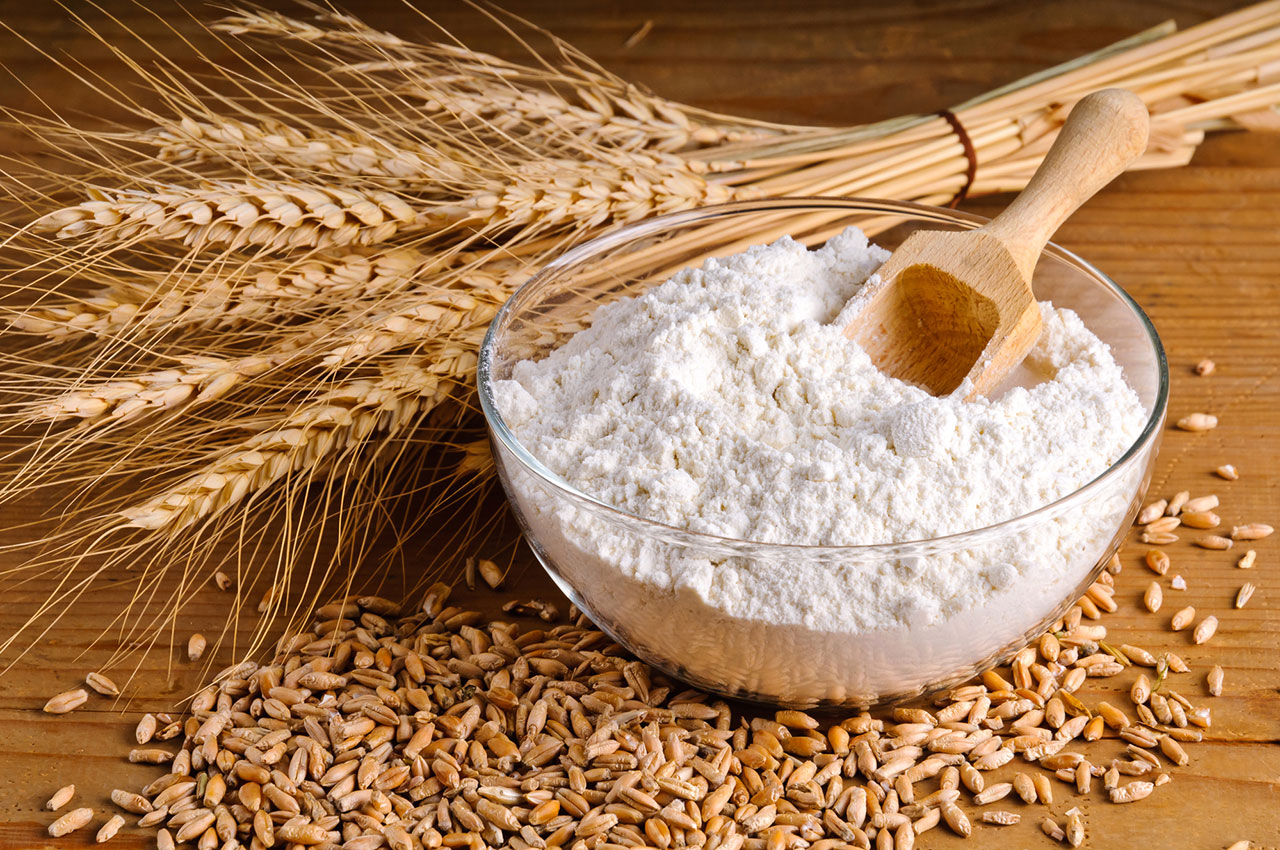Can Dogs Eat Almond Flour?
So here’s a comprehensive guide to answer your questions about this popular baking ingredient. You’ll learn everything you need about almond flour and how your dog can benefit from it.
What is Almond Flour?
Almond flour is a type of gluten-free flour made from ground almonds. It is high in fiber, protein, and healthy fats. Some people may use almond flour because of gluten intolerance or Celiac disease. Others may simply prefer the taste or texture of foods made with almond flour.
Almond flour is a good source of vitamins and minerals, including vitamin E, magnesium, and iron. It also contains a lot of protein and fiber. This makes it a wholesome choice for people who want to include healthier ingredients in their diet.
What Are the Health Benefits of Almond Flour For Dogs?
Regarding your pup, there are plenty of things to worry about. But as dog owners, one thing you don’t have to stress over is what you’re feeding them. Believe it or not, almond flour can provide nutritional benefits to your dog’s specific diet! Here are ten health benefits of almond flour for dogs.
1. Almond flour is a good source of protein.
Dogs need protein because it aids in developing and repairing muscle tissue, maintaining a healthy coat, and other processes. And since almond flour is high in protein, it’s a great way to ensure your pup gets the nutritional value they need.
2. Almond flour is low in carbohydrates.
Carbohydrates are often vilified, but they are essential to a dog’s diet. Unfortunately, large quantities of carbs can lead to weight gain and other health problems. The good news is that almond flour is low in carbs, so you can feel good about giving it to your pup.
3. Almond flour is high in fiber.
Fiber is essential for dogs (and humans!) because it helps with digestion and can prevent constipation. And since almond flour is high in fiber, it’s a great way to keep your pup’s digestive system healthy and prevent stomach issues. Plus, the high fiber content in almond flour can also help your dog feel full and satisfied after eating. This is especially beneficial if your dog wants to maintain or decrease weight.
4. Almond flour can help with weight loss.
If your dog carries a few extra pounds, almond flour can help them slim down. In addition, its low-calorie and high protein and fiber content might help your dog feel full and pleased after eating, which is why. So, think about introducing some almond flour to your pet’s diet if you’re seeking a solution to aid in weight loss or better general health.
5. Almond flour can improve dog’s skin and coat health.
Protein and essential fatty acids are necessary for skin and coat health. And since almond flour is high in both of these nutrients, it can help improve the condition of your pup’s skin and coat.
6. Almond flour can boost cognitive function.
Essential fatty acids are necessary for cognitive function, and almond flour is a good source of these nutrients. Therefore, Almond flour is an excellent choice if you’re seeking for a solution to support your dog’s brain’s optimal performance.
7. Almond flour can promote joint health.
Glucosamine and chondroitin are two essential nutrients for joint health, and almond flour is a good source of both. So Almond flour is a good choice if you’re searching for a solution to keep your dog’s joints healthy.
8. Almond flour can help with diabetes management.
If have diabetic dogs, you’ll want to be careful about the foods you feed them. But luckily, almond flour can be a good option for dogs with diabetes. That’s because it doesn’t have high sugar content, which can help keep blood sugar levels under control.
9. Almond flour can improve dental health.
The fiber in almond flour can help remove plaque and tartar from your pup’s teeth, and the protein can help repair damaged tooth enamel. So if you’re looking for a way to help improve your pup’s dental health, almond flour is the best answer.
10. Almond flour can be used as a training treat.
Because of its high protein and essential fatty acid content, almond flour makes an excellent training treat. Plus, its low calories mean you can feel good about giving your pup plenty of treats without worrying about them getting too overweight.
So, almond flour is an excellent option if you’re looking for a healthy and nutritious way to supplement your pup’s diet. Its high protein, low carbohydrate, and abundance of essential nutrients can improve your dog’s health in various ways. The best part is that it’s a great workout reward!
How Much Almond Flour Should I Give My Dog Daily?
For dogs, almond flour is an excellent protein, vitamin E, vitamin b6, calcium, magnesium, and potassium source. Additionally, it has no gluten and few carbs. However, there are no specific dosage guidelines for the almond flour because it depends on your dog’s size, age, and health. Therefore, it would be best to talk to your veterinarian about the best dosage for your dog.
Small dogs may only need small amounts of almond flour daily, while large dogs may need up to a cup or more. In addition, dogs with health problems such as diabetes or kidney disease may need special diets that contain less almond flour.
Almond flour can be given to dogs dry or mixed with wet food. It is important to slowly introduce this fine powder into your dog’s diet to avoid gastrointestinal upset. Start modest and progressively increase the amount over several days or weeks. If your dog has any adverse reaction to almond flour, discontinue use and consult your veterinarian.
Are There Any Dangers Involved in Giving Dogs Almond Flour?
Almond flour is a popular ingredient in many dog foods and treats, but it can be dangerous for dogs if not used correctly. The ten dangers of feeding almond flour to dogs will be covered in this article, along with an explanation of why each one should be taken seriously.
1. Allergies: Almond products can cause allergies in some dogs, and the symptoms of food allergies can range from mild to severe. Your dog may experience itching, redness, and swelling around the face and mouth if allergic to almond flour. In extreme cases, an allergy to almond flour can lead to anaphylactic shock, which can be fatal.
2. Gastrointestinal issues: Almond flour can cause gastrointestinal upset in some dogs, including diarrhea and vomiting. If your dog eats almond flour and begins to experience these symptoms, it is important to seek veterinary care immediately.
3. Pancreatitis: Almond flour can also lead to pancreatitis in dogs, a severe and fatal condition. Pancreatitis is caused by inflammation of the pancreas, and symptoms include abdominal pain, vomiting, and diarrhea. If your dog eats almond flour and begins to show signs, it is essential to seek veterinary care immediately.
4. Weight gain: Almond flour is high in calories and can cause weight gain in dogs if they overeat it. If your dog is overweight, almond flour can worsen their condition and lead to health problems such as joint pain, diabetes, and heart disease.
5. Nutritional deficiencies: Almond flour is not a complete food and can cause nutritional deficiencies in dogs if they eat it as their sole source of nutrition. Almond flour lacks many essential nutrients, including vitamins, minerals, and amino acids. Therefore, if your dog eats a diet primarily of almond flour, it may experience health problems such as malnutrition, muscle weakness, loss of appetite, and organ damage.
6. Toxicity: Almond flour can be toxic to dogs if they overeat it. Common symptoms of almond flour toxicity include vomiting, diarrhea, seizures, and coma. Therefore, it’s critical to seek emergency veterinary care immediately if your dog consumes a significant amount of almond flour.
7. Mold: Almond flour can contain mold, which can be dangerous for dogs. Mold can cause allergies, respiratory problems, and gastrointestinal upset in dogs. If you think your dog ate moldy almond flour, you must go to the vet right away.
8. Pesticides: Almond flour may be contaminated with pesticides, harming dogs if they eat it. Pesticides can cause various health problems in dogs, including vomiting, diarrhea, and seizures. If you suspect your dog has eaten almond flour contaminated with pesticides, it is essential to seek veterinary care immediately.
9. Salmonella: Almond flour can be contaminated with salmonella, which can cause food poisoning in dogs. Vomiting, diarrhea, fever, and abdominal pain are all signs of salmonella illness. If you suspect your dog has eaten almond flour contaminated with salmonella, it is essential to seek veterinary care immediately.
10. Aflatoxins: Almond flour can be contaminated with aflatoxins, toxins produced by certain fungi. Aflatoxins can cause liver damage and cancer in dogs. If you suspect your dog has eaten almond flour contaminated with aflatoxins, it is important to seek veterinary care immediately.
While almond flour can be beneficial for some dogs, it also has the potential to cause a variety of health problems. As a result, it’s critical to understand the dangers of feeding your dog almond flour and to take appropriate safety measures if you do. If your dog experiences adverse effects after eating almond flour, please seek veterinary care immediately.
What Other Alternatives to Almond Flour Are Safe For Dogs to Eat?
When choosing flour for your dog, almond flour is an excellent option because it is safe for them to eat. There are other flour options available, though, and they are all dog-safe. If you are looking for an alternative to almond flour, coconut flour, rice flour, quinoa flour, brown rice flour, white flour, and whole wheat flour are all great choices.
Your dog can enjoy it without any problems if the flour you choose is unseasoned and do not have artificial sweeteners. Like almond flour, these other types of flour can be used to bake occasional treats or homemade dog treats recipes. So, if you want something different, don’t hesitate to try one of these other types of flour. Your dog will be sure to love it!
The answer to whether or not dogs can eat almond flour is yes, and they can. Almond flour is healthy and nutritious food for dogs that has many benefits. It helps improve their digestion, immune system, coat, and energy levels. Almond flour also contains antioxidants that help protect your dog from disease.



